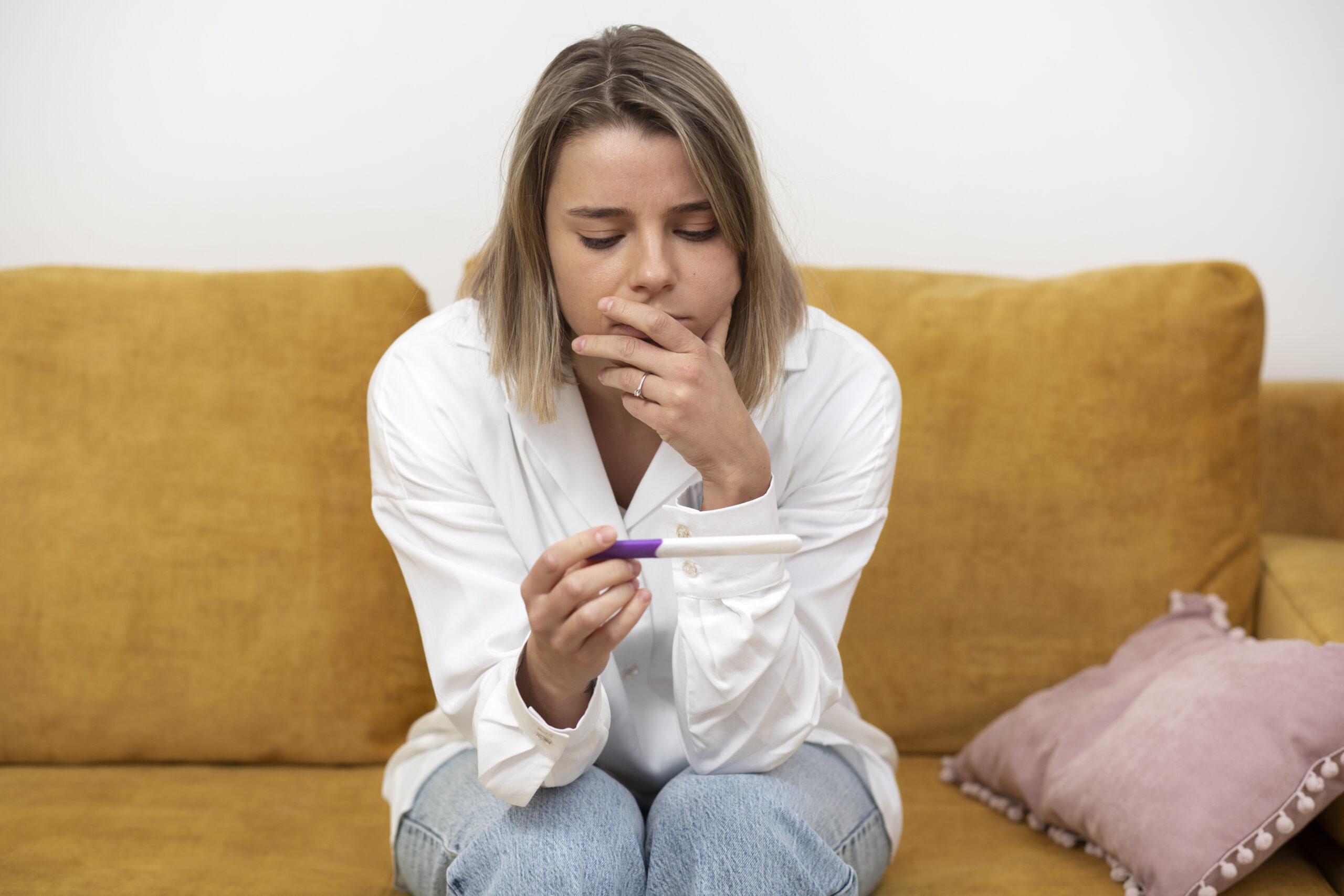Experiencing an irregular period after abortion is a common concern for many women. If your menstrual cycle seems delayed, unusually heavy, very light, or irregular after an abortion, it is often your body adjusting to significant hormonal and physical changes rather than a cause for immediate worry. Recognizing what is normal versus what needs medical attention can help you feel more in control during this recovery phase.
After an abortion, whether medical or surgical, your body undergoes rapid hormonal fluctuations, uterine healing, and emotional adjustments, all of which can affect the timing and nature of your periods. Understanding the causes, recovery expectations, and steps to support your menstrual health can alleviate anxiety and help you regain balance naturally.
This comprehensive guide explores why an irregular period after abortion occurs, what you can expect from your first period, signs that require medical attention, natural recovery strategies, emotional support tips, and guidance on resuming normal cycles.
Why Periods Become Irregular After Abortion
An irregular period after abortion is often a result of complex physiological changes that affect your body on multiple levels. Some of the key reasons include:
- Hormonal fluctuations: After an abortion, progesterone and estrogen levels drop suddenly. These hormones are responsible for regulating your menstrual cycle. A sudden decrease can lead to delayed periods, heavier bleeding, or lighter flows than usual. In addition, the body may take a few cycles to stabilize hormone production fully.
- Uterine recovery: The uterine lining must regenerate and repair after the abortion. In some cases, minor adhesions or residual tissue may temporarily affect menstrual regularity. The uterus also needs time to return to its pre-pregnancy size, and this process can influence the first few periods.
- Physical stress: Both surgical and medical abortion methods put the body under stress, which can disrupt the menstrual cycle. Factors like anesthesia, medications, and the healing process can all contribute to irregular bleeding patterns.
- Emotional stress: Feelings of anxiety, guilt, or sadness can influence hormonal balance. Stress triggers cortisol production, which can interfere with estrogen and progesterone levels, leading to an irregular period after abortion.
Type of Abortion and Its Impact:
- Surgical abortion: Typically results in more immediate uterine and hormonal changes, which may cause heavier or prolonged bleeding.
- Medical abortion: Leads to gradual hormonal adjustments, sometimes causing delayed or irregular periods over a few cycles. Understanding these differences can help set expectations and reduce worry about normal recovery.
What to Expect: First Period After Abortion
Your first period after abortion is a significant milestone in your recovery. Most women experience it within 4–8 weeks, but it can sometimes take up to 12 weeks depending on individual factors. Here’s what to expect:
- Flow variations: The first period may be heavier than usual due to the shedding of extra uterine lining, or it could be lighter if hormone levels are still stabilizing.
- Cramping and discomfort: Mild to moderate cramps are normal, but severe pain should be monitored.
- Blood color and consistency: Blood may range from dark brown to bright red, and clots the size of a small grape are typically normal.
- Cycle length: The interval between periods may vary. Some women experience longer cycles initially, while others may notice shorter ones. Stress, overall health, and type of abortion influence this.
Remember, each woman’s experience is unique. Lifestyle, nutrition, emotional wellbeing, and prior menstrual patterns can all play a role in how your first period manifests.
Common Signs of Irregular Periods After Abortion
While variations are normal, certain patterns indicate an irregular period after abortion that is worth noting:
- Delayed period: Missing a period for more than 8 weeks can be concerning if it continues beyond the usual recovery timeframe.
- Heavy or prolonged bleeding: Periods that last longer than 7 days or require frequent pad changes may indicate uterine issues.
- Light or absent flow: Extremely light periods or skipped cycles can signal hormonal imbalances or stress-related disruptions.
- Severe cramps or unusual clotting: While mild cramping is common, severe pain or clots larger than a quarter should be evaluated.
- Mood and hormonal symptoms: Irritability, fatigue, breast tenderness, and mood swings are all linked to hormonal changes and may accompany an irregular period after abortion.
Monitoring these signs closely can help differentiate between normal recovery and potential complications, allowing for timely medical intervention if needed.
When to Be Concerned & See a Doctor
It is important to seek medical attention if you experience the following warning signs related to an irregular period after abortion:
- Excessive bleeding: Soaking more than one pad per hour for several hours may indicate complications.
- Foul-smelling discharge: Could suggest infection.
- Persistent fever or chills: May indicate systemic infection that requires prompt care.
- No period within 8–12 weeks post-abortion: Could point to hormonal imbalance or retained tissue.
- Severe pelvic or abdominal pain: Persistent or worsening pain may indicate complications like infection or uterine issues.
Timely consultation with a healthcare provider ensures any potential issues are addressed promptly, helping to maintain reproductive health and prevent long-term complications. An irregular period after abortion usually resolves on its own, but medical evaluation is crucial when these red flags appear.
Natural Ways to Support Menstrual Recovery
Supporting your body naturally can encourage a smoother recovery from an irregular period after abortion:
- Rest and stress management: Adequate sleep and mindfulness practices support hormonal balance.
- Balanced nutrition: Consume iron-rich foods, leafy greens, whole grains, and ensure proper hydration to aid uterine healing.
- Gentle exercise and yoga: Improves blood flow to the pelvis and supports hormonal regulation.
- Avoid alcohol and smoking: These can interfere with hormone function and recovery.
- Maintain hygiene: Safe and clean practices prevent infections that could worsen irregular bleeding.
Additionally, supplements like The Science of Good Health – Hormone Balance for Women may help regulate cycles, support fertility, and promote overall hormonal balance.
Emotional Wellbeing Matters
Feeling emotional after an abortion is completely normal. Anxiety, guilt, or sadness can affect your hormone levels and contribute to an irregular period after abortion. Seeking counseling or joining support groups can help you process emotions, reduce stress, and promote healthy menstrual recovery.
How Long Will It Take to Get Back to Normal?
Most women regain regular cycles within 2–3 cycles (approximately 3–6 months). Recovery speed depends on factors like:
- Age and overall health
- Stress and emotional wellbeing
- Contraception use
- Type of abortion and stage of pregnancy
Temporary irregularities are common, and reassurance that your body is healing naturally can reduce anxiety.
Can You Get Pregnant Before Your Period Returns?
Yes, ovulation can occur as early as 2 weeks post-abortion, even before your first period returns. If pregnancy is not desired, contraception should be used immediately to prevent unintended pregnancy.
Final Thoughts
An irregular period after abortion is a common and typically temporary experience. With proper care, emotional support, and healthy lifestyle choices, most women regain normal cycles within a few months. Recognizing warning signs and taking proactive steps can help your body heal efficiently.
Ready to restore balance to your body naturally? At Smriti Kochar’s Ultra-Wellness Program, we guide women in holistic healing, hormone balancing, and menstrual wellness. If you’re struggling with irregular periods after abortion, take a proactive approach today.
Start Your Healing Journey Now with Smriti Kochar
Read Our Latest Blogs
Why Irregular Periods Happen | Food for Irregular Periods | How to Cure Irregular Periods Naturally | Irregular Periods and Pregnancy | Cramps but No Period | Reasons for No Periods After Deviry
Frequently Asked Questions
Ans: Yes, an irregular period after abortion is normal due to hormonal changes, uterine healing, and emotional stress.
Ans: Typically 4–8 weeks, though some women may experience delays up to 12 weeks.
Ans: Yes, emotional and physical stress can disrupt hormone levels, leading to delayed or irregular periods.
Ans: Small clots are normal, but very large or persistent clots should be evaluated by a doctor.
Ans: Surgical abortions may lead to more immediate changes, while medical abortions may result in gradual recovery and irregular bleeding.
Ans: Seek medical attention for excessive bleeding, foul discharge, persistent fever, severe pain, or no period within 8–12 weeks.
Ans: Gentle activities like walking and yoga support circulation and hormone balance but avoid intense exercise initially.
Ans: Balanced nutrition, adequate rest, stress management, gentle exercise, and supplements like hormone support formulations can aid in restoring regular periods.






